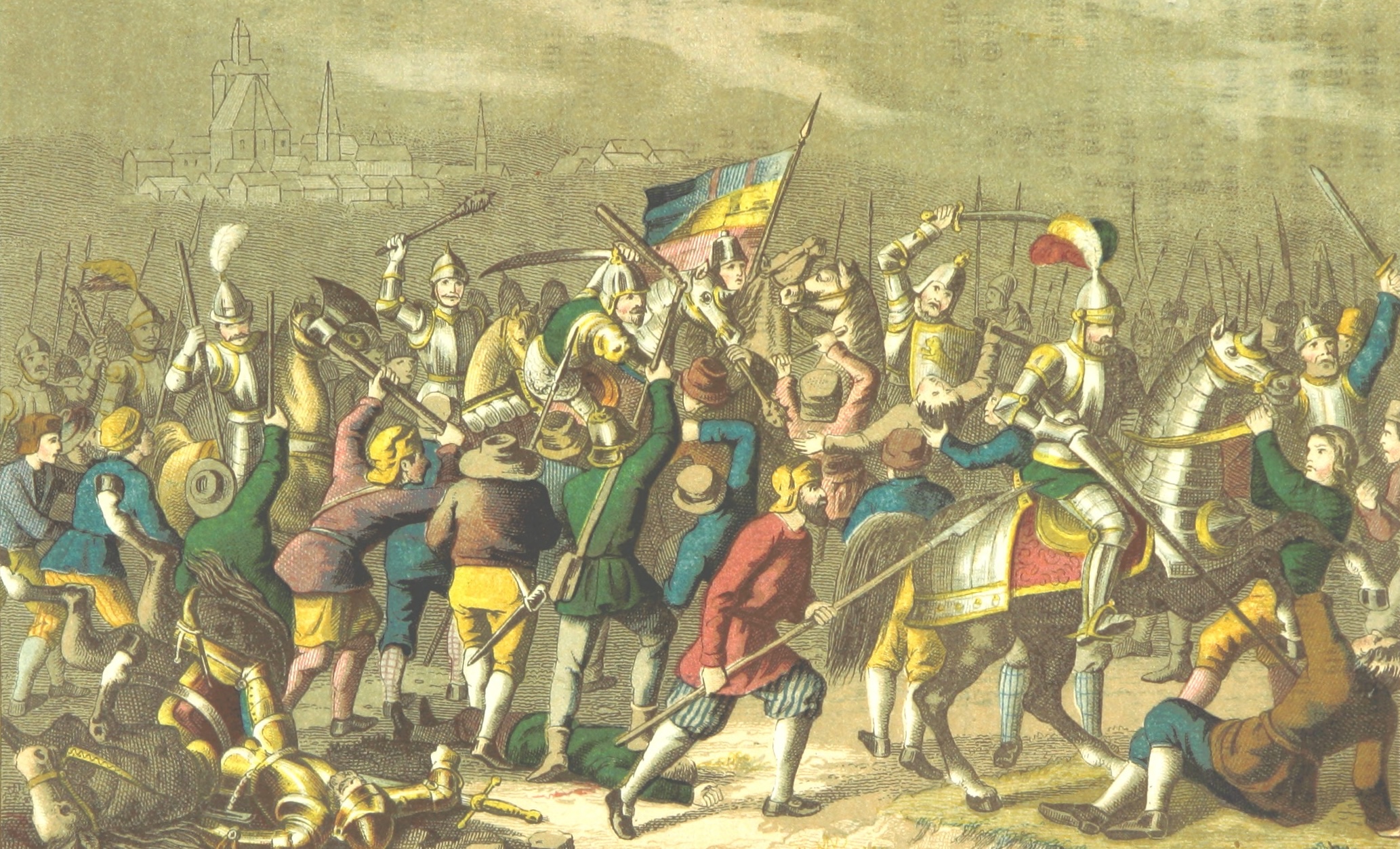
Six Essential Texts That Explain the Historical Importance of the German Peasants’ War
Cundill Prize Finalist Lyndal Roper Recommends Friedrich Engels, Peter Blickle, Gerd Schwerhoff and More
I began my book, Summer of Fire and Blood: The German Peasants’ War, by cycling! First I cycled from Mühlhausen to Frankenhausen, the route that the followers of the revolutionary leader Thomas Müntzer took on their way to the battle where most of them would be slain. I had no map and got hopelessly lost but that taught me the lie of the land. Everywhere I saw relics of the war—a pretty pink landed house which had an oddly deep ditch, for example. It was all that was left of a castle after the peasants destroyed it. Or a pile of stones where once there had been a convent.
Then I cycled from Strasbourg right through Alsace, Baden and all the way down through the Black Forest to Lake Constance, a journey of over 600 km (no electric bikes were used). This showed me how the revolt spread because the region is interconnected; and even today you can see the vineyards and the years of human labor that goes into them—the opponents threatened to burn them down, a credible threat. I visited all of the many battlefields of the war, each with their distinct geography—low boggy ground by the Danube River near Leipheim, where the lords’ army forced the peasants into the river and hundreds drowned, or the “Battle Mountain” of Bad Frankenhausen with its “blood gulley” where the peasants were slaughtered as they tried to escape back into town.
I read everything I could get my hands on, and I went to the archives where I saw the scraps of paper the peasant armies used to write to each other, some hardly literate, some marked by rain on the outside of the folded paper where they had been held. I saw the wax seals the peasants used on their letters, specially commissioned for their armies, some with ploughs, others with flails, some inscribed with the initials of the slogan “The Word of God Endures For Ever.” And I read confessions of those involved in the war. It took me eight years, and there’s so much more to find out.
All my life, ever since leaving Australia when I was 21, I’ve been fascinated by German history. I saw the fall of the Berlin Wall in 1989, and I’ve lived in both the former East and West of Germany. The German Peasants’ War has been the key difference in how East and West understand their past. Was it a movement for democracy and human rights (West)? Or was a Revolution led by the revolutionary Thomas Müntzer (East)? After German reunification, it was simply too hot a subject to touch, and there had been no new history of the war since the 1980s.
So as its 500th anniversary neared, I felt I simply HAD to write about the Peasants’ War. And, after a year of going to events all over German-speaking Europe, I’d say that the differences between East and West remain as deep as ever, thirty-five years since German reunification.
The German Peasants’ War has been forgotten for too long outside Germany—I want to bring it back into modern memory. And I want the former East and West to understand each other’s point of view in what is now a united Germany.
*
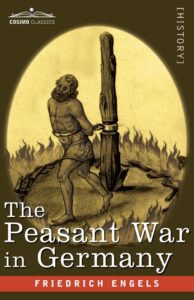
Friedrich Engels, The Peasant War in Germany
This is an absolute classic, by Karl Marx’s co-worker Friedrich Engels. It’s not based on original research—he took it all from another classic, Wilhelm Zimmerman’s three-decker history of the War which came out in 1841-1843 and which has remained the best narrative account of the war until this year. Engels overstates the influence of Thomas Müntzer, who he makes the hero of the war, a revolutionary who was ahead of his times—he is a kind of anti-Martin Luther. Engels’s history was hugely influential in the Communist East Germany.
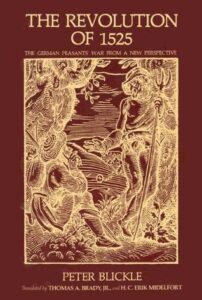
Peter Blickle, The Revolution of 1525: The German Peasants’ War from a New Perspective
Written long before German unification, this book puts the West German version of the Peasants’ War as a “Revolution of the Common Man”—a phrase that rings oddly these days, especially since “common woman” in sixteenth century German meant prostitute!! It remains influential, though it’s not an easy read.
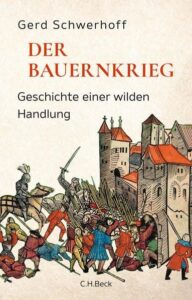
Gerd Schwerhoff, Der Bauernkrieg: Geschichte einer wilden Handlung
Schwerhoff’s book came out at the same time as mine, and it’s a wonderful read, but it’s only in German. It provides a brilliant chronological account of the Peasants’ War that is unlikely to be bettered. He’s also written a study of the revolts that led up to the War.
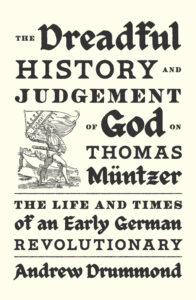
Andy Drummond, The Dreadful History and Judgement of God on Thomas Müntzer
Drummond’s is the best modern study of Thomas Müntzer in English, and it took him thirty years to write. This book really gives you a flavor of the man and why he matters, and it’s a gripping read. Drummond has done more than anyone in the English-speaking world to bring the Peasants’ War and Müntzer to a wide audience, and he has a marvelous website.
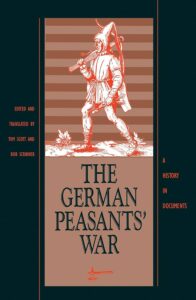
R.W. Scribner and Tom Scott, The German Peasants’ War: A History in Documents
This is a really handy collection of documents these two wonderful scholars translated and put together nearly thirty-five years ago—they stayed up all night translating the texts so they could teach courses on the War to students who had no German. The first sixty pages provide a masterly chronological overview of the Peasants’ War.
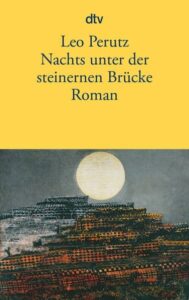
Leo Perutz, Nachts unter der steinernen Brücke (By Night under the Stone Bridge)
This brilliant collection of short stories was published in 1953, but the author wrote much of it before World War II. It evokes the Prague ghetto as it was in the sixteenth century, and it’s an elegy for the world of Jewish life the Nazis destroyed. Full of atmosphere, witticisms and fantastical events, each story seems unconnected to the last, but gradually you realize that you are seeing the same characters from different points of view. It’s a work of genius that should be far better known, and it brings the world of the sixteenth century to life like no other book. I’ve only read it in German—the style is poetic and unforgettable—I can’t vouch for the English translation.
__________________________________
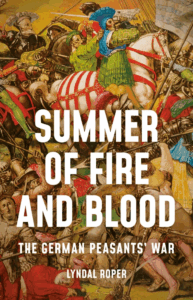
Summer of Fire and Blood: The German Peasants’ War by Lyndal Roper is a finalist for the 2025 Cundill History Prize.
Lyndal Roper
Lyndal Roper is Regius Professor of History at the University of Oxford. Her previous books include Martin Luther and Witch Craze. She is a fellow of the British Academy, a fellow of the Australian Academy of the Humanities, and a fellow of the Berlin-Brandenburgische Akademie der Wissenschaften. She lives in Oxford, South Wales, and Berlin.



















